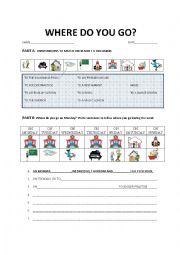
|
Days of the Week + GO TO verb
I double print page 2 to use as memory to introduce the �place� vocab to the kids, having them add the phrase �I go to . . .�
We then do the worksheet together.
Level: elementary
Age: 6-14
Type: worksheet
Downloads: 17
|
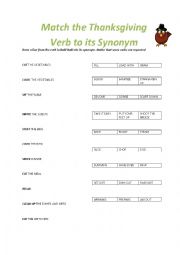
|
Thanksgiving Dinner Synonyms
To introduce upper-intermediate students to synonyms for commonly used verbs. I make 2 copies, and cut one into strips. The student first puts the actions in order from cooking to eating leftovers. She then matches a verb to its 3 synonyms. The worksheet that I haven�t cut up, I then assign for homework along with the exercise of creating new s...
Level: intermediate
Age: 10-100
Type: worksheet
Downloads: 9
|
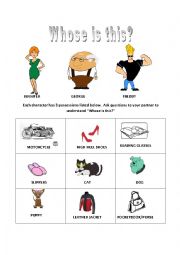
|
The Possessive S, Saxon Genitive
I use this worksheet to introduce the saxon genitive. Students work in pairs to decide which items belong to which character. They check their answers with me and I tell them �yes it is� or �no it isn�t� until they have the right combination. Enjoy!
Level: elementary
Age: 7-100
Type: worksheet
Downloads: 10
|
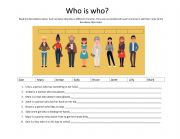
|
Defining Relative Clause with WHO
Can be used to introduce �who� in relative clauses, or as a warm up guessing game. A few different answers can be correct, as long as the student can justify their answers
Level: intermediate
Age: 8-100
Type:
Downloads: 17
|
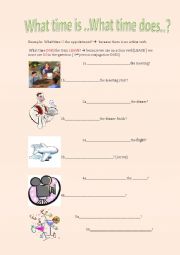
|
What time is .. . OR What time does . .?
An exercise to practice the difference between questions with the verb TO BE and questions using the auxiliary verb DO. Students rewrite the same question using both verbs, choosing WHAT TIME IS ( the movie, etc.) or WHAT TIME DOES ( the movie, etc.) START
Level: elementary
Age: 10-100
Type: worksheet
Downloads: 2
|
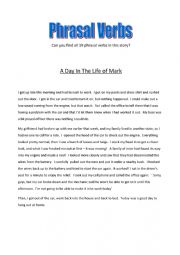
|
Phrasal Verbs Story and Exercises
Use this story to introduce some common phrasal verbs
Level: advanced
Age: 15-100
Type:
Downloads: 23
|
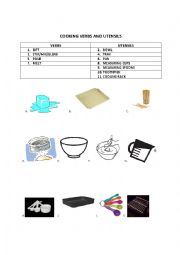
|
Simple Cooking Verbs and Vocab+Recipe
I used this worksheet to introduce a student to the terms he would need in order to bake corn muffins together for Thanksgiving!
Level: intermediate
Age: 7-100
Type: worksheet
Downloads: 4
|
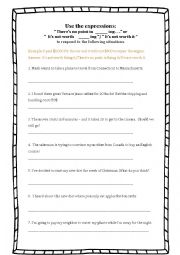
|
No Point In _______ing / It�s not worth _______ ing Ex.
An ex. to practice No point in + gerund, and Not worth + gerund sentences.
Level: intermediate
Age: 14-100
Type: worksheet
Downloads: 11
|
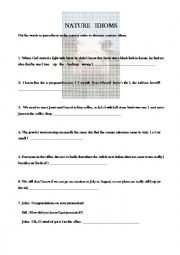
|
Nature Idioms
Unscramble the words in parenthesis to discover a nature idiom. Students can work alone to put the words in order, then go into pairs to deduct the meaning of the idiom from the example.
Level: advanced
Age: 12-100
Type: worksheet
Downloads: 15
|
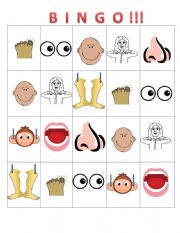
|
Body Part Bingo Cards
Body Part Bingo is based off the song � head , shoulders, knees and toes � and is meant to be a follow up exercise to this well known song.
Level: elementary
Age: 4-12
Type:
Downloads: 4
|